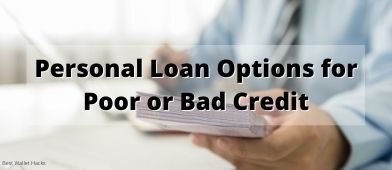
Low credit scores can prevent you from getting the best interest rates or landing a better job. It takes several years to build excellent credit scores as you make monthly credit card and loan payments.
Thankfully, there is a new way to build credit without borrowing money or getting a credit card. Experian® Boost™ is a free way to improve your credit scores by tracking monthly bill payments that don’t normally land on your credit report, such as utility, phone, and streaming services.
Paying these bills on time shows you are responsible with your money, yet typically, these payments don’t affect your credit because they aren’t debt payments. Experian Boost™ looks to change that. It can report up to 24 months in the past and only reports positive information. Missed or late bill payments for these bills are ignored.
It doesn’t matter if you have no credit, excellent credit, or are somewhere in between, this Experian Boost™ review can help you see how much of a boost your credit scores can get.
Table of Contents
- How Does Experian Boost™ Work?
- What Bills Can Experian Boost™ Track?
- What Bills Doesn’t Experian Boost™ Track?
- Does Experian Boost™ Report Negative Information?
- How Many Points Does Experian Boost™ Give You?
- Does Experian Boost™ Help All Three Credit Bureaus?
- Who Can Join?
- Cost
- Extra Experian Boost™ Perks
- Joining Experian Boost™
- Positives and Negatives
- Does Experian Boost™ Really Work?
- Other Ways to Build Credit
- Make On-Time Payments (With Some Help)
- Try Credit Builder Loans
- Use Secured Credit Cards
- Keep a Low Credit Utilization Ratio
- Apply for Credit Sparingly
- Summary
How Does Experian Boost™ Work?
Experian Boost™ is a free feature from the Experian credit bureau. You can have Experian add your monthly utility, telecom and streaming plan payments to your Experian credit report and likely see an instant FICO® Score boost.
The average Experian Boost™ user sees a 13-point increase, according to Experian’s website. However, you may see a higher or lower increase depending on your current credit history and the number of bills you add.
Experian Boost™ also has the following features:
- access to your Experian credit report
- see your FICO® score
- Experian credit monitoring
- dark web surveillance
Using Experian Boost™ is entirely free. Also, it doesn’t perform a “hard credit check” that hurts your credit scores like applying for a loan or credit card.
What Bills Can Experian Boost™ Track?
You can use Experian Boost™ to track qualifying utility, telecom and streaming services for up to 24 months in the past. Experian Boost™ only reports the positive payment history for the linked accounts and ignores the months when you miss payment due dates.
Qualifying bills include:
- Electric
- Gas
- Water
- Trash
- Phone (landline and cellphone)
- Internet
- Cable or satellite TV
- Qualifying streaming services
I have Experian Boost™ tracking my electric, cellphone, and internet bills. My local water utility doesn’t offer an auto-pay or credit card payment option, so I don’t receive credit for paying my water bill.
You can link your bank accounts and credit cards and Experian Boost™ looks for qualifying recurring payments. After scanning your linked accounts, Experian lists which accounts you can add.
Enrolling in auto-pay for your utility bills with a linked account is the easiest way for Experian to find bills.
Over 8,000 banks can connect to Experian Boost™ – including “second chance” banks. But credit unions may not link to Experian which means you won’t be able to add bills you pay from those accounts.
To protect your privacy, Experian only has read-only access to your bank account and uses 256-bit encryption that is standard for most financial apps. Also, Experian Boost™ won’t store your bank username and passwords on their server.
What Bills Doesn’t Experian Boost™ Track?
Experian Boost™ doesn’t track every recurring bill. One example is bills that you pay with online bill pay and your bank mails a paper check to the utility. Enrolling in auto-pay where the utility automatically debits your bank account monthly can let Experian Boost™ track your bill.
You won’t receive credit for recurring bills like rent payments or medical bills either.
Does Experian Boost™ Report Negative Information?
You can’t hurt your credit scores by using Experian Boost™. Unlike banks that report late loan and credit card payments, Boost™ doesn’t report late or missed payments from your linked accounts.
But, Experian Boost™ doesn’t prevent the utility from reporting negative information to your Experian credit report if your account becomes delinquent. But that’s true whether you use Experian Boost™ or not.
How Many Points Does Experian Boost™ Give You?
First and foremost, Experian Boost™ doesn’t guarantee a minimum credit score increase. Experian mentions the average user sees a 13-point increase on their FICO® Score 8.
The FICO® Score 8 is one of the most commonly used credit scoring models for lenders. As a result, the score that Experian Boost™ shares can be more accurate than other free credit score sites that use the VantageScore. Some lenders may use an industry-specific credit score that emphasizes your previous experience with similar loans – such as auto loans.
People with no credit history or low credit scores can see the highest increase. One testimonial (Nora V.) mentions receiving a 47-point increase. This large of an increase is less common, but it’s possible if you don’t have a lengthy credit history.
If you already have good credit scores in the 700s or low 800s, you may only see an increase of a few points. For instance, my Experian credit score increased five points, from 807 to 812 after adding one utility and two telecom payments.
FICO® Score 8 Credit Score Ranges
Experian Boost™ will calculate a FICO® Score between 300 and 850. A higher score indicates a more robust credit history.
Below are the credit score ranges for the FICO® Score 8:
- Very Poor: 300-579
- Fair: 580-669
- Good: 670-739
- Very Good: 740-799
- Excellent: 800-850
While Experian Boost™ may not help you go from fair credit to excellent credit overnight, the FICO® S increase can help you get closer to the next tier. In addition to the FICO® Score increase, the potential lender can see your positive payment history for qualifying bills.
It can take up to six months of payment history to get credit scores. Linking your monthly bills can help you establish a payment history sooner so you can qualify for credit accounts that report to the credit bureaus.
See what the average credit score in America is to compare your score.
Does Experian Boost™ Help All Three Credit Bureaus?
Experian Boost™ only improves your FICO® Score 8 from Experian. You won’t be able to share your bill payments with the other two credit bureaus – Equifax and TransUnion.
However, Experian Boost™ won’t be helpful if the lender doesn’t request an Experian credit score. There isn’t much to lose except for the few minutes to enroll as Experian Boost™ is free.
Who Can Join?
Any US adult age 18 or older can join Experian Boost™. You will need to create a free Experian account by entering your name, street address, and email address.
This service is ideal for people with a credit score below 670 which is the start of good credit. Also, those who don’t have loan payments or credit cards can benefit from Experian Boost™. The typical credit scoring model favors consistently borrowing and repaying loans to get the highest credit scores.
Cost
Experian Boost™ is 100% free to join and use. Experian doesn’t require a credit card so you don’t have to worry about hidden charges.
If you decide to use some of Experian’s other premium services, you will need to pay for those. Also, Experian may recommend credit cards that match your current credit score. It’s optional to apply for these cards but Experian can receive a small kickback if you are approved for one.
Extra Experian Boost™ Perks
The best reason to use Experian Boost™ is to instantly increase your credit score for free. You also get several extra amenities for free.
Free Experian Credit Report
You will be able to see your Experian credit report that calculates your credit score. It’s possible to access your credit reports for free at least once a year at AnnualCreditReport.com. (during the pandemic, you can access it every week)
While you get a free credit report, you don’t get to see your credit score. Your Experian credit reports and FICO® Score updates once every 30 days.
Each monthly report includes these details:
- FICO® Score
- Number of open, closed, and self-reported accounts
- Accounts reported as ever being late or in collections
- Overall credit usage (i.e., credit utilization ratio)
- Debt summary
- Hard credit inquiries within the past 24 months
- Public records
- Personal name and address history
You can use the Experian credit report to look for any reporting errors. Take the time to look for fraudulent accounts as well.
If you find an error, you will need to file a dispute with each affected credit bureau. It’s free to dispute errors but the process can be tedious.
Credit Monitoring Alerts
In addition to getting a new report every 30 days, Experian will send monitoring alerts when the bureau detects unusual activity. These alerts are only for your Experian credit report. You might receive an alert when you apply for a new loan, credit card, bank account, or if there is an address change.
To prevent suspicious activity, Experian lets you lock your Experian credit report online or the Experian mobile app with a single button tap. Locking your credit report means banks and others performing a credit check can access your credit report or credit score. You will need to unlock your credit report before authorizing a hard credit pull from a potential lender, landlord or employer.
Dark Web Surveillance Report
As there are many data breaches and leaked passwords, your personal information may be for sale online on the “dark web.” Experian scours the illicit places of the interwebs and can alert you of possible activity. The free dark web surveillance monitors your Social Security number, email, and phone number.
Joining Experian Boost™
You only need a few minutes to join Experian Boost™ and always enjoy free access to your Experian credit report and FICO® Score.
Create an Account
The first step is creating an Experian account by clicking the “Start your Boost™” button. You will enter your name, current address and the last four digits of your Social Security number. An email address is also necessary to verify your account.
Enroll Monthly Bills
You can link multiple banks and Experian Boost™ looks for all qualifying bills in your bank accounts and credit cards.
After scanning each account, Experian lists the bills that Experian Boost™ can track. You can choose which bills to include the positive payment history for up to 24 months in the past.
Monitor Credit Scores
Experian Boost™ displays how many points your credit scores increase after linking your qualifying bills. These bills show up as “self-reported accounts” on your Experian credit report. You will receive reminders from Experian when your credit report and FICO® Score changes.
Positives and Negatives
Here are some pros and cons to Experian Boost™:
Pros
- Always free to use
- Only reports positive payment history
- Tracks utility, telecom, and streaming plan bills
- Can access FICO® Score 8 using Experian credit report
Cons
- FICO® Score boost is small for some
- Doesn’t report to Equifax or TransUnion credit bureaus
- Unhelpful if lenders don’t request Experian credit report
Does Experian Boost™ Really Work?
Most people can see a small credit score increase. If you already have a good credit score (670+), the boost may have a minimal boost in your approval odds for a new credit account or qualify for a lower interest. At the same time, Experian Boost™ doesn’t hurt.
Those who don’t have loans or a credit card but have utility, telecom and streaming plan payments can see the highest increase. Reporting some positive payment history on an empty credit report can see above-average credit score increases.
Other Ways to Build Credit
Experian Boost™ is an easy and effortless way to improve your credit. For you, this free tool may be the start and there are other products that can increase your score for all three bureaus.
Make On-Time Payments (With Some Help)
One of the biggest factors that can impact your credit score is making on-time payments. If you find yourself constantly missing due dates or losing track of your bills, there are services out there to help you better organize yourself.
For example, Cushion is a digital app that can help you manage and pay your bills and Buy Now Pay Later payments. You can track what’s been paid and what’s due next so that you won’t miss any payment dates. Plus, because you can pay those bills with a virtual Cushion card, you’re building your credit history while demonstrating responsible credit use.
Try Credit Builder Loans
Lending money to yourself with a Self Credit Builder Account lets you build credit for up to 24 months. You make monthly payments into a certificate of deposit account and Self reports each one to the three bureaus. When the loan term ends, you receive your payment balance minus fees.
Read our Self Credit Builder review to learn more.
Use Secured Credit Cards
When your credit scores are in the high 500s or low 600s, consider getting a secured credit card. Unlike an unsecured credit card, a secured card requires a refundable security deposit. In most instances, the security deposit is equal to your credit limit. So, a $500 deposit means you have a $500 card spending limit.
You can qualify for a secured card if you need to build credit or rebuild a damaged score. Look for a card without an annual fee and from a bank that reports to all three credit bureaus. Some banks to consider first are Discover, Capital One, or Citi.
As your score increases, the bank will review your account and can offer you to upgrade to an unsecured card.
Keep a Low Credit Utilization Ratio
Various credit score websites recommend keeping your credit utilization ratio below 30% of your total credit limit. For example, if you have a $10,000 credit limit on a credit card, your card balance remains below $3,000.
If you have extra money each month, consider paying off your loans early. Consider paying off your revolving accounts such as credit cards first. Not only do these cards have higher interest rates than most bank loans, but having more available credit reduces your credit utilization ratio.
Apply for Credit Sparingly
You should also only apply for credit when you need it. Each hard credit check temporarily reduces your credit score. Hard inquiries also remain on your credit report for two years.
Multiple inquiries can also discourage lenders from approving a credit decision. Opening too many new accounts in a short period can make you appear risky and more likely to default.
If you’d like to see how different actions might affect your credit, check out credit score simulators.
Summary
As Experian Boost™ is free and only reports positive payment history, the service can’t hurt and is worth trying if a good credit score is important. Most of us have utility, telecom and streaming bills that Experian Boost™ can effortlessly track and reward your on-time payments.
Cushion disclaimer: Many factors are involved in your credit score, making the experience and result unique for each individual. Cushion does not guarantee and cannot predict that your credit score will improve by a specific amount, percentage, or at all within a specific period of time or by using Cushion. Credit building is one of several premium features included in Cushion’s paid subscription.




